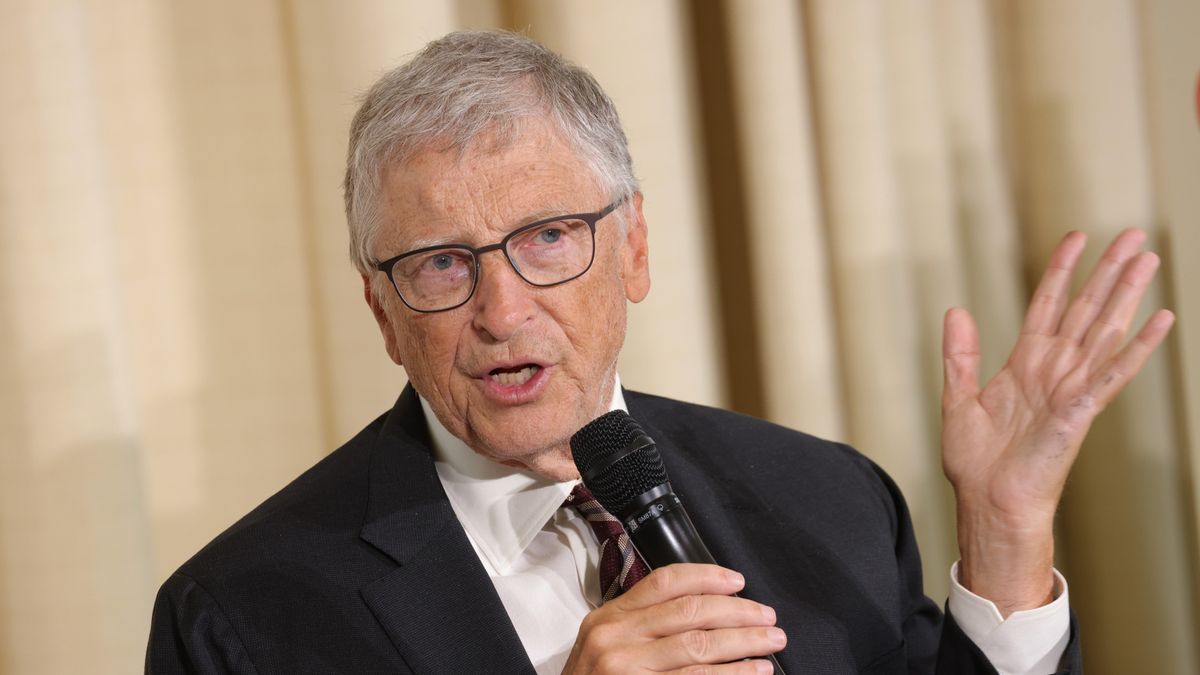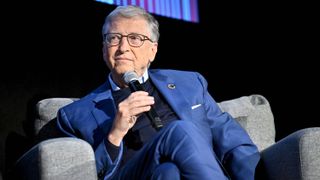Bill Gates says, "We weren't born to do jobs. AI will replace humans for most things."
Microsoft's co-founder says humans weren't born to do jobs, and that they are just a manifestation of historical labor shortages.

With the rapid emergence of generative AI, the world is quickly evolving into a new realm and redefining how we view work. Over the past few months, Microsoft's co-founder Bill Gates has shared interesting insights about how AI will impact work.
The philanthropic billionaire recently shared more insights about the impact of AI on jobs while in an exclusive interview with The Indian Express:
"We weren't born to do jobs. Jobs are an artifact of the shortage that, oh gosh, somebody better be a farmer. Okay, somebody better drive those trucks around. All of that is based in creating the human intelligence to provide a broad range of services."
"And so as you get away from that being a necessary thing, you get a lot more leisure time and it'll be people who've grown up in that world of no shortage who will have to think through."

Bill Gates admits that it'll be an uphill task to reprogram the mind to adapt to this new reality, especially for a generation that has grown up in a world rife with shortages.
However, once this feat is unlocked, the billionaire claims the society will reach a level of output, food, and medical advice that won't require everybody to work like they do today.
Interestingly, Bill Gates says humans won't be required to work as hard as they do today. Instead, they'll have the choice to dictate what machines can help out with and preserve things for themselves.
Get the Windows Central Newsletter
All the latest news, reviews, and guides for Windows and Xbox diehards.
Will only three jobs survive the AI revolution?

Bill Gates recently indicated that AI will replace humans for most things, suggesting that it has a high propensity to automate most professions. However, he claimed that only three jobs will survive the AI revolution, including biologists, energy experts, and coders, predominantly because the fields are too complex to fully automate using AI.
Interestingly, coding has been singled out by top players in the tech industry as the first profession on AI's chopping block. Even NVIDIA CEO Jensen Huang claims coding might already be dead in the water with the prevalence of AI.
Instead, the executive recommends exploring alternative career paths in biology, education, manufacturing, or farming. This year, Meta and Salesforce have been at the forefront, highlighting strategic changes in their workforce.
Salesforce CEO Marc Benioff indicated that the company is seriously debating hiring new software engineers in 2025, while Mark Zuckerberg says mid-level AI engineers might claim coding jobs from professionals at Meta in 2025.
And while Bill Gates' predictions are highly concerning, he claims AI might create a 2-day work week in 10 years.

Kevin Okemwa is a seasoned tech journalist based in Nairobi, Kenya with lots of experience covering the latest trends and developments in the industry at Windows Central. With a passion for innovation and a keen eye for detail, he has written for leading publications such as OnMSFT, MakeUseOf, and Windows Report, providing insightful analysis and breaking news on everything revolving around the Microsoft ecosystem. While AFK and not busy following the ever-emerging trends in tech, you can find him exploring the world or listening to music.
You must confirm your public display name before commenting
Please logout and then login again, you will then be prompted to enter your display name.